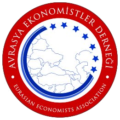
International Congress on Eurasian Economies
26-28 June 2024 – Bishkek, KYRGYZSTAN
Paper properties
Paper ID : 2948
Status : Paper accepted
Language : Turkish
Topic : Macroeconomics
Presenter: Asst. Prof. Dr. İlkay Güler
Session : 7B Kalkınma
The Relationship Between Electricity Generation From Wind Power And Economic Growth: Various Causality Analyses For Türkiye
Rüzgar Enerjisinden Elektrik Üretimi ve Ekonomik Büyüme Arasındaki İlişki: Türkiye İçin Çeşitli Nedensellik Analizleri
- Asst. Prof. Dr. İlkay Güler (Ankara Hacı Bayram Veli University , Türkiye)
Abstract
More than three-quarters of the energy used in Turkey is fossil-based and import-dependent. Therefore, Turkey's current account deficit is increasing in addition to environmental pollution. Renewable energy sources are a crucial factor for green economic growth. In addition to being an environmentally friendly, infinite energy source, wind energy has many advantages in terms of low operating costs, high efficiency, and energy security. Due to these advantages, it stands out among other renewable energy sources. While electricity generation from renewable energy in Türkiye is 42.4%, 12.4% of this rate is provided by wind energy. Türkiye was chosen as a sample country in the study because of its high wind energy potential. The relationship between electricity generation using wind energy and GDP per capita is investigated. Data for the 2011 Q1-2021 Q4 period were obtained from the Republic of Türkiye Ministry of Energy and Natural Resources and OECDdata websites. Within this objective, various causality analyses involving Granger, Toda-Yamamoto, Hacker and Hatemi-J, Fourier Granger and Fourier Toda-Yamamoto are performed, and all evidence achieved from the tests verifies the neutrality causality hypothesis between wind energy and economic growth. The essential policy recommendation to reduce energy import dependency, increase green employment, reduce CO2 emissions, tax advantages to reduce wind energy production costs, increasing wind energy projects, acceleration of studies for onshore and offshore wind farms and avoid paying carbon tax as of 2026 within the framework of CBAM implementation is to ensure green transformation by increasing renewable energy investments.
JEL codes: O11, Q42, Q43



